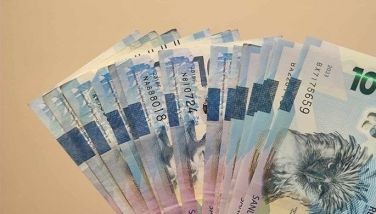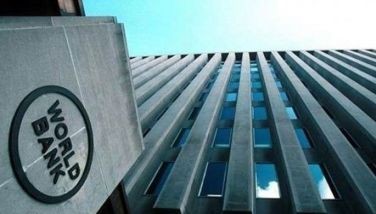BSP readies new rules to liberalize forex trade
MANILA, Philippines — The Bangko Sentral ng Pilipinas (BSP) is set to put in place a fresh wave of foreign exchange liberalization measures aimed at facilitating the ease of doing business in the country.
In a luncheon meeting hosted by the European Chamber of Commerce of the Philippines (ECCP), BSP Governor Nestor Espenilla Jr. said that the central bank aims to further ease the country’s foreign exchange regime within the year.
The major overhaul of the country’s foreign exchange regime would be the 10th wave as the central bank has adopted several changes over the past few years.
On top of the agenda is the relaxation of the registration process, Espenilla said.
The BSP is working on a new regulation in consultation with the banking industry. We want to do away with the registration process as a necessity to be able to access foreign exchange from the financial system,” he said.
Espenilla said the registration process was actually a product of the financial crisis in the ’70s.
“It was borne out of situation where we basically are rationing foreign exchange simply because we didn’t have a lot of those back in the day. Today is a very different economy, there’s a lot of foreign exchange available to the country,” he said.
The BSP chief said the intention of the central bank is for foreign exchange transactions to be reported to the BSP but not as a screening mechanism of what should come in or out.
“We are reforming the system such that if it’s possible, to do an electronic report, so you don’t have to even submit documents to the BSP. We’re going to do that not just for inward investments but also for foreign borrowings by the private sector,” Espenilla said.
The BSP has a dual, highly regulated formal foreign exchange market and a very liberal parallel market that passes through the foreign currency deposit unit (FCDU) system, according to Espenilla.
He said authorities want foreign exchange transactions to move into the regulated market where it is visible and the anti-money laundering standards could be applied.
“We are tightening the requirements on the non-banks that are currently dominant in the parallel market, as well as liberalizing requirements on the banks operating in the formal market,” he said.
The BSP has implemented nine waves of foreign exchange reforms since 2007, primarily aimed at rationalizing and facilitating stakeholders’ access to foreign exchange resources of the banking system for legitimate foreign exchange transactions to support business activities that could contribute to economic growth and development.
- Latest
- Trending























